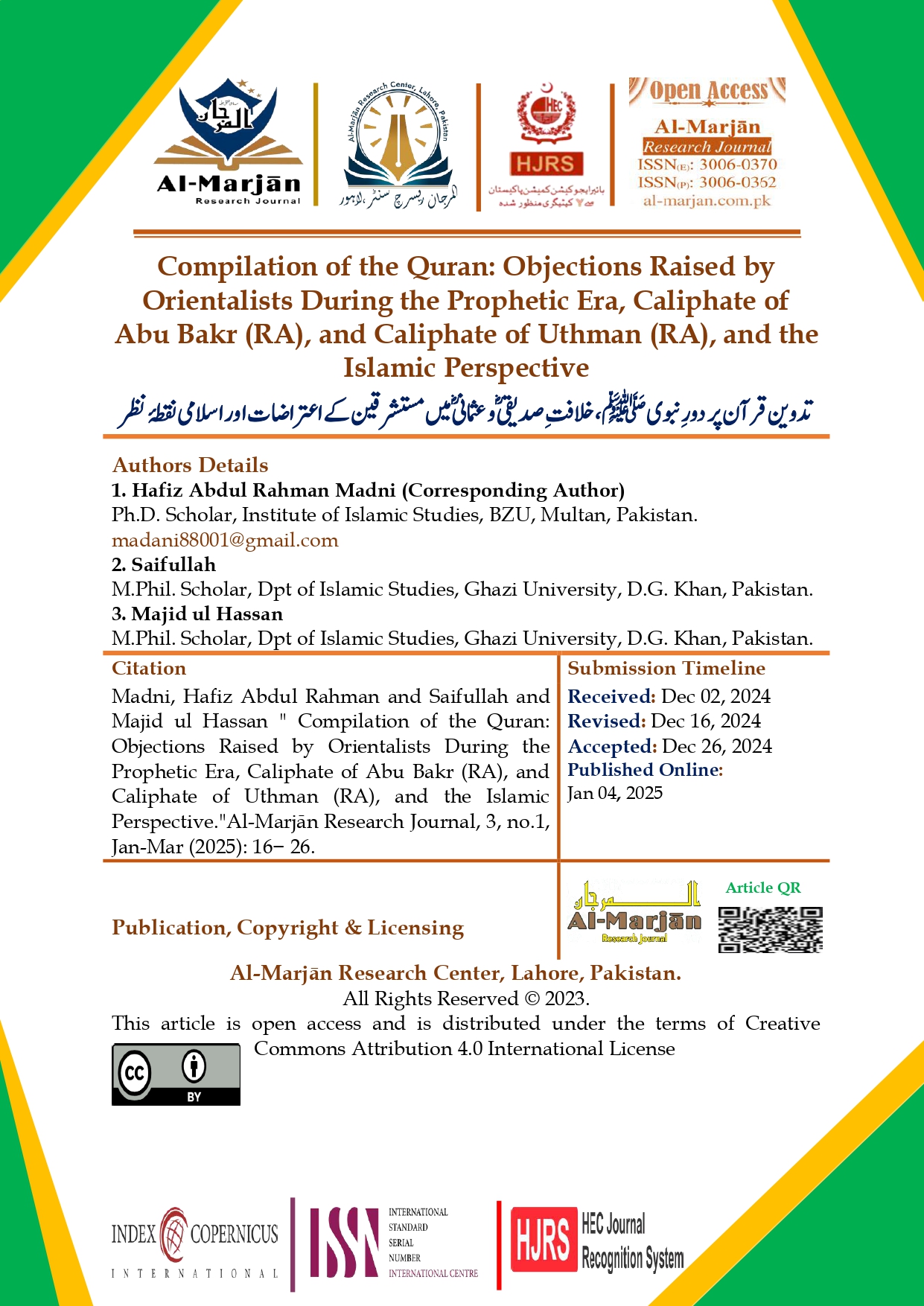Compilation of the Quran: Objections Raised by Orientalists During the Prophetic Era, Caliphate of Abu Bakr (RA), and Caliphate of Uthman (RA), and the Islamic Perspective
تدوین قرآن پر دورِ نبوی ﷺ، خلافتِ صدیقیؓ و عثمانیؓ میں مستشرقین کے اعتراضات اور اسلامی نقطۂ نظر
DOI:
https://doi.org/10.1234/gqnazx14Keywords:
Qur'an, Compilation, Prophetic Period, Abu Bakr (RA), Uthman (RA), Orientalist Objections, Islamic PerspectiveAbstract
The compilation of the Qur'an represents a landmark in Islamic history, ensuring the preservation of the divine message in its authentic form. During the Prophet Muhammad’s (PBUH) life, the Qur'an was revealed in stages and preserved through both memorization and writing. Following the Prophet’s passing, the need for a unified text became evident due to the loss of memorizers in the Battle of Yamama. Under the leadership of Caliph Abu Bakr (RA), a systematic effort to compile the Qur'an began, supervised by Zaid bin Thabit (RA), a trusted scribe of the Prophet. This initial compilation was further standardized during the Caliphate of Uthman (RA), who addressed differences in recitation by unifying the text and distributing official copies across the Muslim world. This study examines the objections raised by Orientalists, such as alleged textual discrepancies and claims of human intervention in the compilation process. It critically evaluates these claims in light of Islamic sources and historical evidence, demonstrating that the Qur'an's compilation was conducted with meticulous care and divine guidance. The analysis underscores the integrity and preservation of the Qur'an, refuting misconceptions and affirming its authenticity. The research contributes to understanding the historical process of the Qur'an's compilation while addressing Orientalist critiques through an Islamic lens. It emphasizes the role of divine protection and the early Muslim community's efforts in preserving the Qur'an for future generations.






































